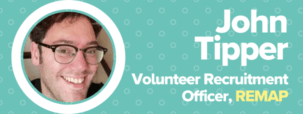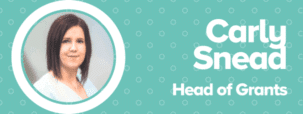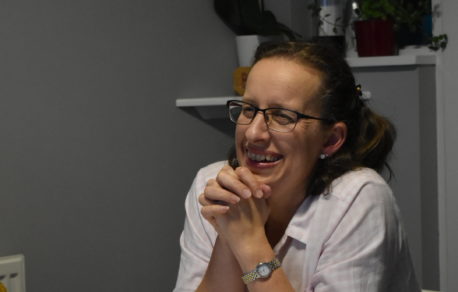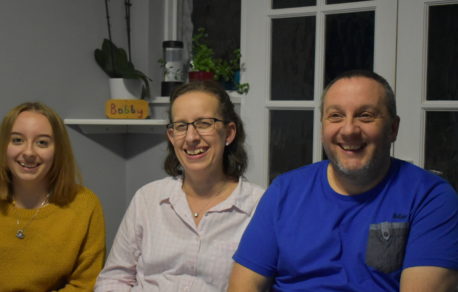
Blog: Wolf’s tips for succeeding in the workplace as a neurodivergent engineer
In this blog post Foothold Trustee Wolf Byttner shares some of the key challenges he faces as an engineer with dyslexia, as well as his top tips for manging deadlines, daily tasks and written communications.
Hi everyone, I’m Wolf, a Trustee of Foothold. As this is Neurodiversity Celebration Week, I wanted to share my experience of being neurodivergent in the workplace. I was diagnosed as dyslexic towards the end of my university experience, so I know more about adapting in the workplace than at school, personally.
Some people say neurodiversity is a superpower. For others, it’s seen as more of a barrier. I think both of these views are a bit simplistic and overshadow what neurodiversity can mean for people.
Your brain (well, my brain) is wired to be better at some things than most people, and to struggle more with other things. People with dyslexia often see the bigger picture but struggle with detail. Whether this is a benefit or a barrier depends on the context – and I believe the best way to succeed in your career as an engineer is to lean into your strengths.
In this short post, I will talk about three key challenges I face with being dyslexic in the workplace, and how I work to overcome them in a professional context.
There are several challenges that can come with being neurodiverse in the workplace.
Some of these challenges you can overcome and some are things you may want to assign elsewhere, but by carefully managing the aspects of work you find difficult, you can work to your strengths and build a stellar engineering career!
Keeping track of things
![]()
One of the most difficult aspects I find with being neurodivergent is that I often struggle with keeping track of things. To-do lists, calendars and reminders are always helpful here. But there are two things that I do that help me stay on top of the work, and one thing I don’t do.
First, I build a routine around my work. I always start my day 30 minutes before the first meeting, checking emails and messages. I then largely turn these off until after lunch to focus on work. 30 minutes before the end of the day, I check my calendar for what’s coming up tomorrow and go through all my meetings. By doing this every day, I don’t forget important meetings, and I get back to people in a timely manner.
Second, I religiously maintain my calendar, ensuring that even meetings 6 months into the future are recorded. I also book in meetings well in advance, for example to ‘review’ things, like the fire safety plan. It can be helpful to ‘CC’ in your manager too, to show them that you will take care of the fire safety review (or whatever it might be). This way, you both know you’re on top of that task.
Finally, I personally don’t usually offer to take notes in meetings. I feel like I might miss important things that are said and it would be unfair to other participants. I do, however, use AI (where allowed) and written agendas to ensure that everything is tracked. I also share this task with team members to ensure it gets done. If I do take notes, I do it in front of everyone, so people can fill in gaps then and there. Ironically, this has sometimes led to minutes from my meetings being better than most meeting minutes!
Working to meet deadlines
Jonny (Foothold’s Head of Fundraising and Communications) initially asked me to write this article two weeks ago. I started writing it on the day after it was due. Deadlines are often challenging for neurodivergent people, as they require you to be structured and on top of detail. Many neurodiversity conditions are defined roughly as ‘struggling with details’ (don’t quote me on this – I am not an expert), so meeting deadlines can be hard.
How do I overcome this? First, I account for this in my planning. If I feel that something takes 2 days, I commit to a deadline in 6 days. Not surprisingly at this point, I often forget to account for a bunch of things, so I need those 4 days to finish the work.
Secondly, I often complete the easiest part of the task first and then commit to a final deadline. I then have extra time to finish up and investigate anything else needed. I can therefore stay on top of my work by committing to a deadline only when I fully understand the scope.
I don’t like to be the person who is always late with things. This way, I can largely meet deadlines in the workplace.
Written communications
Returning to the topic of emails, it’s common for neurodivergent people to not reply on time (if you’re impacted by this – I’m sorry!). I find that structured ‘email replying’ sessions are the best way to overcome this. Leave everything as unread until you have the time, mark it as unread again if you opened it, this way emails needing a reply are easier to find. Also, if you need to follow up on an important email – pop it in the calendar!
And if you struggle with writer’s block, here’s a tip. I always start replying to an email by writing ‘Hi [Name], …, Kind regards, Wolf’. I then go back and fill in the content. Those extra seconds of writing a greeting helps my mind process the reply and lets me get straight to writing. It also means everyone gets the same greeting – so remember to occasionally switch things up!
Another challenge is structured communication like exams, or your Chartered Engineering application. Here, I’m afraid I have fewer tips, other than perhaps choosing credentials that are less heavy on writing. I managed to get through the CEng application, but I won’t lie – it is not dyslexic-friendly. The interview at the end was actually quite straightforward after all that writing. So if you are able to pick credentials with a verbal or project-based component, that might be a way forward.
Finally, if things are unclear, ask the question and check in with your colleagues. Today, I struggled with understanding what the ‘eupore’ project was, thinking it was some kind of pore-based solution. It turns out that it was a typo, and it was supposed to say ‘Europe’. A (non-neurodivergent) colleague rapidly pointed this out, showing the strength of diverse teams!
If you’re neurodivergent, think you might be, or you support someone who is, we can offer you expert, tailored support to help you manage your condition, and reach your study or career goals.
Get support with neurodiversity:
Join our Differently Wired Hub – where you can access expert tools, information and resources, all in one place
Apply for our Engineering Neurodiverse Futures programme – dedicated support for students and apprentices, including fast-tracked diagnoses, financial help, and specialist counselling
Enquire about a diagnosis as an adult – we can consider funding for adult members of the engineering community to access a diagnosis of a neurodiverse condition
Next up: watch Darren’s story of living and working as an engineer with ADHD




